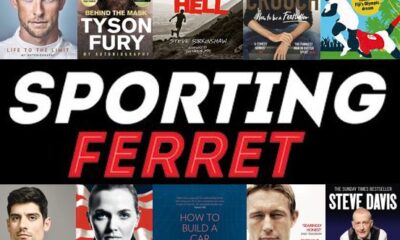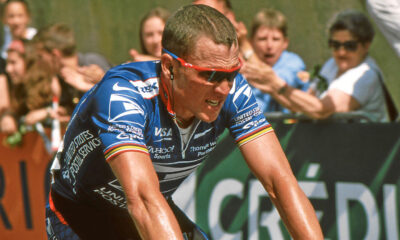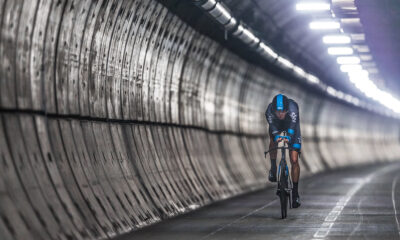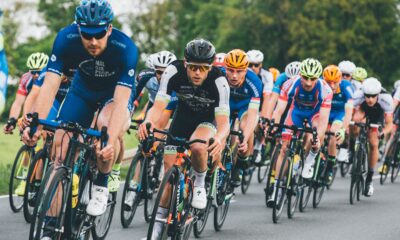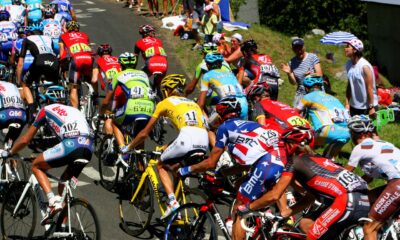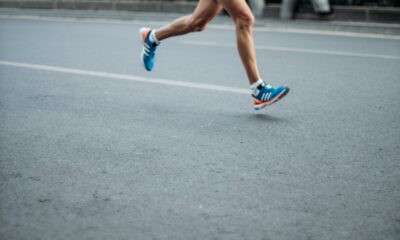Cycling
The Tour de France 2020: All You Need to Know
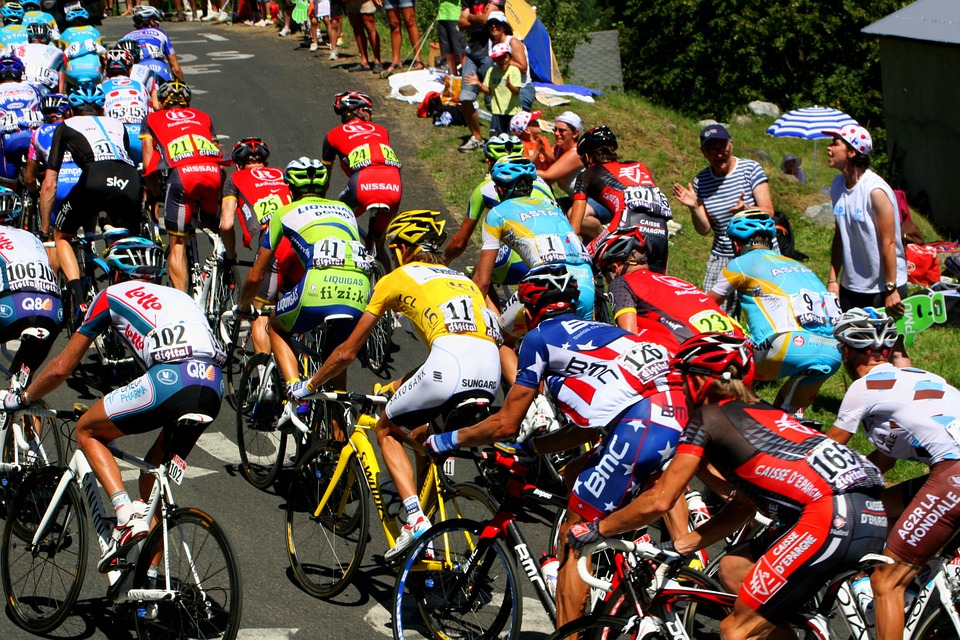
Here’s all you need to know before you intend to experience and enjoy the greatest cycling feature ever known to humankind: The Tour de France
The Tour de France 2020: All You Need to Know
After a period of sceptic uncertainty, it’s been confirmed that the greatest test of human endurance and willful determination in world cycling history, The Tour de France will go ahead for the year 2020.
At first glance, Le Tour as its most commonly referred may all seem a little overwhelming for a complete beginner. With a wealth of French history and an explosion of colour from riders wearing bright coloured jerseys with various sponsors, it wouldn’t be unusual if you found it hard to keep up. Never fear, here is the beginner’s guide of a few simple things to keep in mind.
Tour de France bikes: Who’s riding what in 2020? #TDF2020 | https://t.co/oemnehJQRW
— Cycling Weekly (@cyclingweekly) August 28, 2020
A Brief History of Le Tour
The 107th edition of the historic racing feature will commence this week on the 29th of August. The race will see the world’s greatest cyclists go head to head in a 23-day long gruelling challenge to determine who will wear the prestigious Maillot Jaune (the Yellow jersey) on the top step of the podium in front of the grand Champs-Élysées.
The Tour was founded in 1903 by Henri Desgrange, editor of L’Auto magazine as a way of promoting his publication. Back in the day, advertising wasn’t as simple as getting a shoutout on the radio or putting an ad in the news. Particularly in rural parts of France, many of its small towns and villages were closed industries with a little to no input from the outside world.
The 2022 Tour de France will effectively be 4 weeks long: 3 weeks of the men's TDF followed by 1 week+ of the new women's Tour de France. Women's TDF to start in Paris on final day of men's TDF. The women's race looks to be similar to Paris-Nice & will be broadcast LIVE on TV. pic.twitter.com/NrdiwO5h2h
— Pete Geyer (@cyclingfans) August 22, 2020
Therefore, Desgrange decided to hold a bicycle race that would pass through all these small towns and villages as a way of promoting the sport and his magazine. During this time, L’Auto magazine was printed on a very distinct yellow paper. Therefore, the leader of the race and the winner overall would be awarded the Maillot Jaune to further popularise the magazine.
Over the past 107 occasions of the Tour, the race has managed to capture the imagination of the public and thus become the biggest annual sporting event in the world with more live spectators than even the Olympic Games or the FIFA world cup!
Le Tour Explained
The Tour de France is primarily a stage race that is broken down into 21 stages. Why the Tour is a show of great physical human skill is because on average, participants will cycle over 175 km in a day consecutively for 23 days with only two rest days in between!
Le Tour is also essentially a team race with 22 groups of riders working in unison to support their own team leader to win the race overall. It is mandatory that each team consist of eight riders. The ‘Domestiques’ (team members) resolve to strategy and teamwork to ensure that their Lead Rider is in the best possible position to finish ahead of other riders.
This year the ‘Peloton’ (the massive group of riders) will set off from Nice where two stages will be held in the dreamy coastal city. The riders, however, won’t have time to admire their amicable surroundings as the winner of the Tour is determined by the rider with the lowest cumulative finishing times in each stage.
Tour De France 2020 Route: Nice to Paris
The 2020 Tour de France will begin in the sunny French coastal city of Nice and end on the streets of Paris as fans wait excitedly for the 107th edition.https://t.co/HjMDXQAXXO#cycling #bicycling #TourdeFrance #ProCycling pic.twitter.com/P3mMyQK06L
— SoCalCycling.com – Your Cycling Source (@SoCalCycling) August 26, 2020
One can easily identify the leader the Tour by the striking yellow jersey with the letters ‘LCL’ on the front that they will don for the duration of the race. It is possible for the leader of the race to change as each stage comes with its own unique challenges that the riders and the teams will have to tackle.
While the Maillot Jaune is the most celebrated jersey in the race, there are other jerseys up for grabs in what is known as Classifications. The Yellow jersey is what is worn by the leader of the General Classification or as its most commonly referred to as the GC.
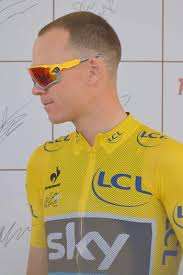
Chris Froome wearing the Yellow Jersey
Then there is the Maillot Vert (Green jersey), awarded to the rider according to the position that they finish each stage. The winners in each of the 21 stages will be awarded the highest points with less points awarded to those that cross in second, third, etc. Some stages such as a Sprint stage will carry a higher point score in comparison with a Time–Trial stage. The points are then tallied up after each stage and added to points won in all previous stages.
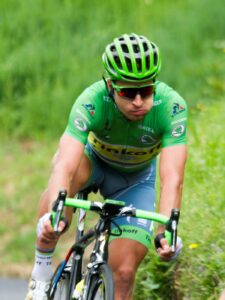
Peter Sagan wearing the Green Jersey
Next is the most interesting looking jersey awarded to the King of the Mountains Classification winner. This is a very distinct white jersey with red polka dots and therefore, it is referred to as the Maillot à Pois Rouges (the Polka-dot jersey). The winner of this classification is determined by points awarded to the riders who crest the numerous Le Tour climbs first. Points awarded depends on the severity or ‘category’ of the mountain determined by the organisers.
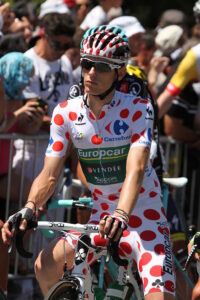
Pierre Roland wearing the Polo Dot Jersey
Finally, there is the classification for the pelotons Best Young Rider who will don the Maillot Blanc (the white jersey). It’s the least distinctive of all of the classification jerseys as it’s plain white. However, winning the jersey is no easy task as it is awarded to the fastest under-26 rider who completes all 21 stages of the Tour de France. Egan Bernal at the age of 22 became the youngest rider in the past 110 years to win this classification and is the bookmaker’s favourite to win this year’s race.
Who are the Favourites?
These will be the riders most favoured to win and it will be their names that are thrown around by commentators and cycling fans globally during the race.
- Egan Bernal, Colombia (Team Ineos Grenadiers)
- Primoz Roglic, Slovenia (Team Jumbo-Visma)
- Chris Froome, Great Britain (Team Ineos Grenadiers)
- Thibaut Pinot, France (Team Groupama-FDJ)
- Geraint Thomas, Great Britain (Team Ineos Grenadiers)
- Tom Dumoulin, Holland (Team Jumbo-Visma)
- Nairo Quintana, Colombia (Team Arkéa-Samsic)
- Tadej Pogacar, Slovenia (UAE Team Emirates)
- Julian Alaphilippe, France (Team Deceuninck-Quick Step)
- Adam Yates, Great Britain (Team Mitchelton-Scott)
- Emanuel Buchmann, Germany (Team Bora-Hansgrohe)
- Miguel Ángel López, Colombia (Team Astana)
- Mikel Landa, Spain (Team Bahrain-McLaren)
- Steven Kruijswijk, Holland (Team Jumbo-Visma)
- Richie Porte, Australian (Team Trek-Segafredo)
- Enric Mas, Spain (Team Movistar)
- Jakob Fuglsang, Denmark (Team Astana)
- Romain Bardet, France (Team Ag2r-La Mondiale)
- Fabio Aru, Italy (UAE Team Emirates)
- Rigoberto Urán, Colombia (Team EF Education First)
The Popular Teams
Several of the teams mentioned below have had contenders for the yellow jersey at some point in the last five years. These are the elite pro-class teams with big-name sponsors that invest on average over 15 million dollars to see that their teams to win the GC.
-
Team INEOS-Grenadiers, United Kingdom (budget: $25m)
Previously known as Team Sky. Hailing from the United Kingdom they have only one goal; victory.
Squad: Egan Bernal; Andrey Amador; Richard Carapaz; Jonathan Castroviejo; Michał Kwiatkowski; Luke Rowe; Pavel Sivakov; Dylan van Baarle
We are the INEOS Grenadiers #BuiltOnPurpose pic.twitter.com/0wyMGHlq0L
— INEOS Grenadiers (@INEOSGrenadiers) August 26, 2020
-
Groupama-FDJ, France
This most traditional of French teams is built around one man, Thibaut Pinot as he mounts his title fight for the yellow jersey.
Squad: Thibaut Pinot; David Gaudu; Stefan Küng; Valentin Madouas; Rudy Molard; William Bonnet; Matthieu Ladagnous; Sébastien Reichenbach
-
Team Jumbo-Visma, Netherlands (budget: $10m)
If their main man Primoz Roglic starts and finds form, they will be by far the toughest opponents. Almost like a thorn in the side of Team INEOS during this year’s Tour de France.
Squad: Tom Dumoulin; George Bennett; Robert Gesink; Amund Grøndahl Jansen; Sepp Kuss; Tony Martin; Primoz Roglic; Wout van Aert
— Team Jumbo-Visma cycling (@JumboVismaRoad) August 26, 2020
-
BORA-Hansgrohe, Germany (budget: $12m)
Peter Sagan is their main man and the team overall is no stranger to a title fight.
Squad: Peter Sagan; Emanuel Buchmann; Felix Gross Schartner; Lennard Kämna; Gregor Mühlberger; Daniel Oss; Lukas Pöstlberger; Max Schachmann
-
Movistar Team, Spain (budget: $11m)
Since the 80s the team formerly known as Banesto have targeted the overall. This year, however, Alejandro Valverde looks well past it, while Enric Mas has yet to mature.
Squad: Alejandro Valverde; Imanol Erviti; Enric Mas; Lluís Mas; Nelson Oliveira; Antonio Pedrero; José Joaquín Rojas; Carlos Verona
??? Llega la hora de conocer al equipo que Movistar Team alineará en @letour_es. Vídeo de presentación y declaraciones de @alejanvalverde, @EnricMasNicolau y @solermarc93 → https://t.co/8BTMKLGSoM#TDF2020: Meet our @letour team (? ?? captions) → https://t.co/wJohbMNe9c pic.twitter.com/icWc6hRebr
— Movistar Team (@Movistar_Team) August 26, 2020
-
Astana, Kazakhstan (budget: $14m)
Team founded for the greater glory of Kazakhstan now largely reliant on Spaniards and Colombians.
Squad: Miguel Ángel López; Omar Fraile; Hugo Houle; Gorka Izagirre; Ion Izagirre; Alexey Lutsenko; Luis León Sánchez; Harold Tejada
-
Bahrain-McLaren, Bahrain
Best opportunity for their main man Mikel Landa to mount title fight with a more than capable team at this year’s Tour de France.
Squad: Mikel Landa; Pello Bilbao; Damiano Caruso; Sonny Colbrelli; Marco Haller; Matej Mohoric; Wout Poels; Rafael Valls
.@LeTour Team presentation. Here we go!
?? @MikelLandaMeana
?? @PelloBilbao1990
?? @CarusoDamiano
?? @sonnycolbrelli
?? @mhaller91
?? @matmohoric
?? @WoutPoels
?? @RafaVallsFerri#TDF2020 #RideAsOne? @bettiniphoto pic.twitter.com/R1LdfgLIr0
— Team Bahrain McLaren (@BahrainMcLaren) August 27, 2020
-
Deceuninck-Quick-Step, Belgium (budget: $12.5m)
A two-pronged attack for cycling’s strongest all-round squad: Ireland’s Sam Bennett targets sprints and Julian Alaphilippe is after everything else.
Squad: Julian Alaphilippe; Kasper Asgreen; Sam Bennett; Tim Declercq; Dries Devenyns; Bob Jungels, Michael Mørkøv; Zdenek Stybar
-
Lotto-Soudal, Belgium($10m)
It’s all about winning stages for one of pro cycling’s oldest squads. Their main goal is to support Caleb Ewan in the sprints but they can also look to hard men Philippe Gilbert and Thomas De Gendt on the hilly days.
Squad: Caleb Ewan; Steff Cras; John Degenkolb; Jasper De Buyst; Thomas De Gendt; Philippe Gilbert; Roger Kluge; Frederik Frison
-
Mitchelton-SCOTT, Australia($9.5m)
With the overall GC beyond their grasp, the Aussie team will be gunning for stage wins with strong man Adam Yates.
Squad: Adam Yates; Jack Bauer; Sam Bewley; Esteban Chaves; Daryl Impey; Christopher Juul-Jensen; Luka Mezgec; Mikel Nieve
? LOCKED AND LOADED ?
“We are very happy with the mix of experience and talent we have available for this year's race. This is a very complete group across all terrains." – Head DS, Matt White ?
We're on the hunt for stages at #TDF2020! ??
? https://t.co/isTCWE69RK pic.twitter.com/rfLA1MyrHC
— Mitchelton-SCOTT (@MitcheltonSCOTT) August 20, 2020
-
EF Pro Cycling, United States
American squad with a dilemma; target the overall with Rigoberto Urán or stage wins with everyone else?
Squad: Rigoberto Urán; Alberto Bettiol; Hugh Carthy; Sergio Higuita; Jens Keukeleire; Daniel Martínez; Neilson Powless; Tejay van Garderen
-
UAE Team Emirates, United Arab Emirates
A mishmash of nationalities containing some serious talent.
Squad: Fabio Aru; David de la Cruz; Davide Formolo; Alexander Kristoff; Vegard Stake Laengen; Marco Marcato; Tadej Pogacar; Jan Polanc
-
Team Arkéa-Samsic, France
Second division squad with a strong multinational lineup led by climbers Nairo Quintana and Warren Barguil.
Squad: Nairo Quintana; Winner Anacona; Warren Barguil; Maxime Bouet; Dayer Quintana; Diego Rosa; Clément Russo; Connor Swift
We hope you enjoyed this article ‘The Tour de France 2020: All You Need To Know’. Which riders and teams will you be supporting? Let us know!
If you liked this article why not check out:
- Where Next for Chris Froome?
- ESPN 30 for 30 ‘Lance’: Is it time to Forgive Lance Armstrong?
- The problem of fighter underpayment in the UFC
- F1 2020 calendar: Turkey, Bahrain and Abu Dhabi are the final three races
-

 News1 month ago
News1 month agoThe Best Male Tennis Players of All Time
-
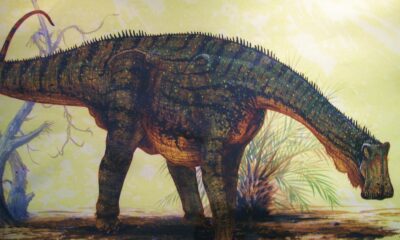
 Uncategorised1 month ago
Uncategorised1 month agoWhat Dinosaur Has 500 Teeth?
-

 News1 month ago
News1 month agoThe Fastest Rugby Players Ever
-

 Football1 month ago
Football1 month agoThe Best Penalty Takers of All Time
-

 Football1 month ago
Football1 month ago10 of the most underrated footballers in the world right now
-

 Football1 month ago
Football1 month agoPlayers with the most goals in a Premier League season
-

 Football1 month ago
Football1 month agoWho is the Fastest Football Player in the World?
-

 Football1 month ago
Football1 month agoChelsea’s Possible Lineup For Next Season


